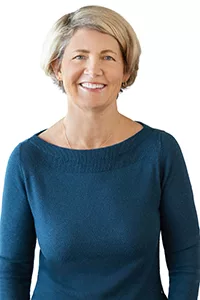By Stephanie Roberts
I’ve asked myself these questions more than once throughout my career:
What’s my leadership style? And is it actually effective?
They sound simple, but they require reflection, honesty, and time.
We’re each uniquely qualified to examine the experiences that shaped how we lead. I’ll share how my leadership style formed, how it’s evolved, and what I’ve learned along the way—particularly from those who used to work for me.
How My Style Took Shape
I didn’t learn to lead in a corporate seminar—I learned through life. While my style evolved slowly, it hasn’t changed dramatically.
I grew up in a low-income household with seven siblings, raised by a single mom. From a young age, I developed four traits that have remained core to who I am:
- Relatability
- Curiosity
- Logic
- Resilience
I also developed an early and deep sense of responsibility. I moved out at 17 years old. Security wasn’t a given—so I created it for myself.
These traits helped me succeed early in my career. I was curious, I worked hard, and I constantly looked for ways to improve processes. That mindset got me noticed—and promoted. At that stage, life was simpler. I didn’t have any children and I could focus entirely on work.
Then came leadership.
The Shift: Life Got Real, and So Did My Leadership
By my early 30s, I was leading a team. I was also navigating major life transitions: marriage, divorce, marriage (again) and motherhood. On top of that, I faced deeply personal challenges—family members struggling with addiction, and the loss of close relatives.
It changed me.
I realized that if I was carrying this much, my team probably was, too. That awareness made me a more empathetic leader. I began leading not just with expectations but with understanding.
Here’s an example of a story that sticks with me:
A team member—also a single mom—had just returned from vacation and nervously asked for time off to attend her daughter’s preschool graduation. She was afraid I’d see it as “additional time away.” I smiled and said, “That’s wonderful—can I come too?”
That moment mattered not just to her but to me. When you value people’s lives outside the office, the loyalty and trust you build are invaluable.
Career Over Company? Actually, Yes.
This may sound counterintuitive, but one of the most effective things I do as a leader is prioritize my employees’ careers—even if that means they leave.
I never want to be blindsided by a resignation. More importantly, I want to be part of their career journey. I tell my team early on: if you’re thinking about making a move—inside or outside the company—let’s talk about it.
This opens the door to honest conversations, better succession planning, and real growth. We identify skills they want to build and milestones they’d like to hit. If I can help them leave on a positive note and with the right next step lined up, that’s a win for them, me, and the organization.
Yes, I’ve asked people to stay on through major deadlines before transitioning, and I’ve also written glowing references. Many of these same people return to work with me later or refer great talent my way.
How Do I Know It’s Working?
Feedback is easy to spot in performance reviews and team meetings, but the most meaningful validation often comes later. Some of the most powerful moments of my career have happened long after someone moved on.
One of my greatest honors was when a former employee invited me to his father’s funeral. I was the only work friend there. Years earlier, I had contacted his father to tell him how impressive his son was. A connection was made with his Dad. That gesture mattered, and it had a lasting impact.
Over the years, many have reached out to say, “You didn’t just help my career. You helped my life.” That kind of effectiveness can’t be found in KPIs or OKRs.
Final Thought: What’s Your Style?
I wrote this for anyone else reflecting on how they lead.
Leadership is deeply personal and should evolve with one’s life. For me, it’s been a blend of logic and compassion, expectations and empathy, accountability and growth. I’ve learned that leadership isn’t static; it evolves as we do. My style took shape through childhood experiences, but truly deepened as I navigated life’s twists and turns.
If your team knows you care about who they are outside of work, you’ll get more than performance—you’ll earn their trust. And that’s the kind of leadership that endures.



